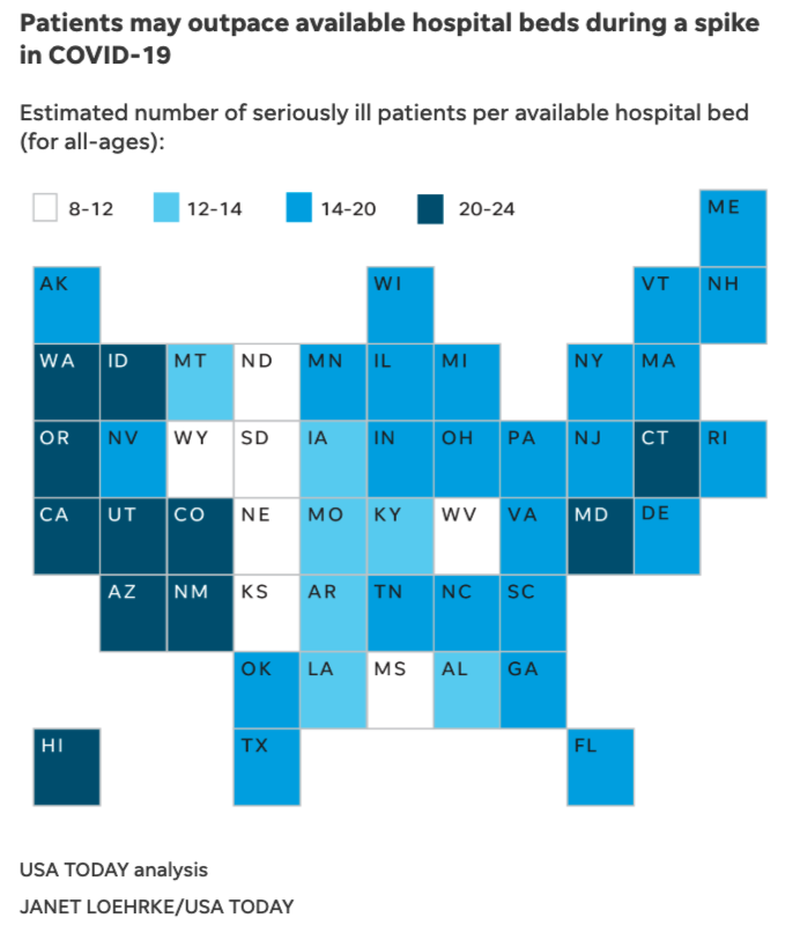It's Spring Break ... well ... rest of the year break.
It's Monday evening, and a lot has happened in the 3.5 days since we last had class. Where do I even start?
Of course, Utah and SUU have been locked down, and then locked down tighter, more than once. You're probably all familiar with that. Lots of lockdowns of various degrees in Europe too.
There is a bright spot. The first towns in northern Italy that were quarantined over 3 weeks ago seem to be getting their outbreaks under control. That news is from "Lockdown of Recovering Italian Town Shows Effectiveness of Early Action" in the March 16th issue of The Wall Street Journal. The problems in Italy have largely been the spread of the virus outside of those initially quarantined towns into areas that did not take the quarantine and social distancing ideas seriously until almost 3 weeks later. Keep that in mind when thinking about wherever you are hibernating.
Iran continues to be weird. They have a supreme leader, currently Ali Khamenei. He appoints, but they also appoint him (don't ask, I don't get it either) members of the Assembly of Experts. Almost all are Ayatollahs (a religious office). The bottom line is that there's a group of old men, with some level of religious attainment, who run the country. Anyway, one of them died of SARS-CoV-2 on Monday. Lots of countries are having top people test positive, but Iran is the only one in which they're dying.
There has been some hope that perhaps warm weather will make the outbreak go away. This is not happening: there are outbreaks in the southern hemisphere, where it's summer. Due note that we're not really sure at all why some viruses are less active in the summer, so it's mostly just wishful thinking that this one would be.
Well ... Brexit was about the UK not having to do what the rest of Europe decides to do ... and they are doubling down on this one. There's a lot of misinformation out there about what the UK is doing. But roughly, they've decided that the cost of shutting down the country for weeks to months is likely to exceed the cost of the outbreak, so they're not going to do it. I am not sure whether this is a good idea or not (I'm not inclined to think so). But, I think it is hugely relevant to everyone, everywhere, that someone tries some different stuff to see what works. Everyone seems to be following the China model, except the UK, South Korea, Taiwan, Singapore, and to some extent Hong Kong. Japan is also trying something different, but it seems fairly similar to the U.S. approach of not testing that much.
Please keep in mind what you learned about compounding numbers: they reach "records" every day. So when you hear something like new cases in Italy set a new record today ... tune it out. Focus on growth rates, and time to double.
Having said that, where the compounding raw numbers are important is in figuring out whether or not a healthcare system is going to get overloaded. The problem in most places has been that the increase in hospitalization numbers eventually exceeds the number of available hospital beds (which just can't grow that fast, even in China).
Another way in which to think usefully about the compounding raw numbers is in comparing the size of epidemics across countries. Everyone still has huge doubts about China's numbers. But, taking them at face value, China has 24 times as many people as Italy, but only 3 times as many cases. This suggests that Italy's outbreak is far worse than China's. China has 18 times as many people as Iran, but only 5 times as many cases (I don't trust Iran's numbers either). Spain is getting up there too: China has 31 times as many people, but only 10 times as many cases. The same exercise shows that most of Europe is worse off than China was. The U.S. still seems to be better off than China.
The European Union government in Brussels is starting to look moribund. It is a nice thing when times are good, but we're definitely seeing the member countries go their own ways. I am willing to admit to political growing pains and immaturity, but the idea that the EU would be like a united states of Europe seems untenable.
I will put up a separate post about this sometime, but for now, please do not buy into the fib that this is mostly a disease of the old. France is reporting that half of its ICU patients are under 60, and The Netherlands is reporting that half are under fifty.
USAToday did a study of which states have the most and least hospital beds per potential patient:
Utah is in the worst group.
Goldman Sachs is now forecasting 2020 II real GDP growth to be -5%. That would be worst in 12 years.

No comments:
Post a Comment